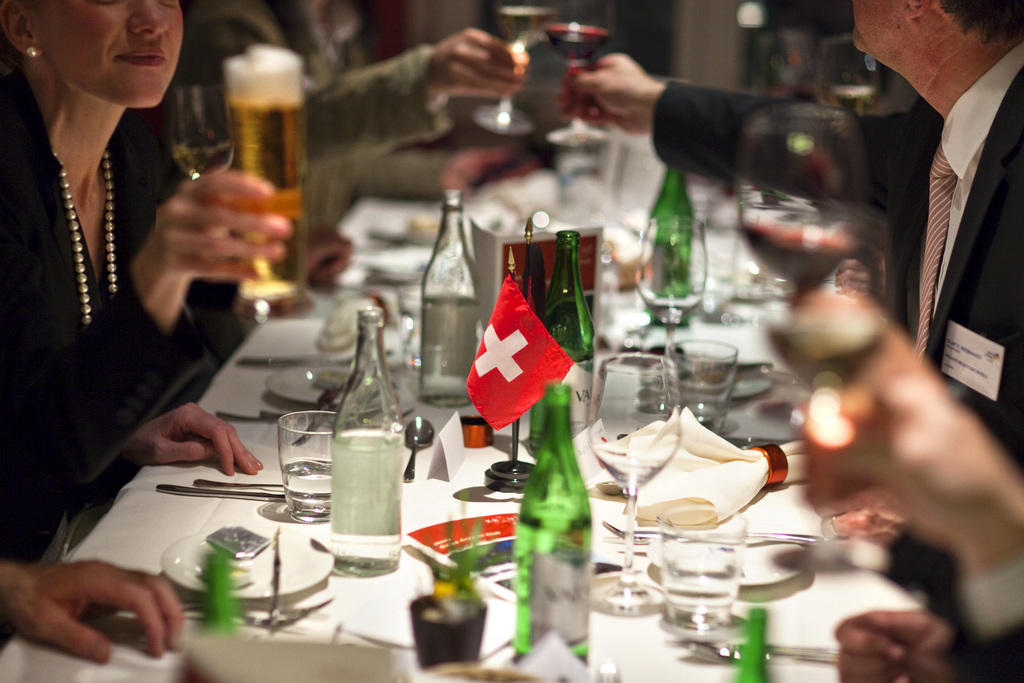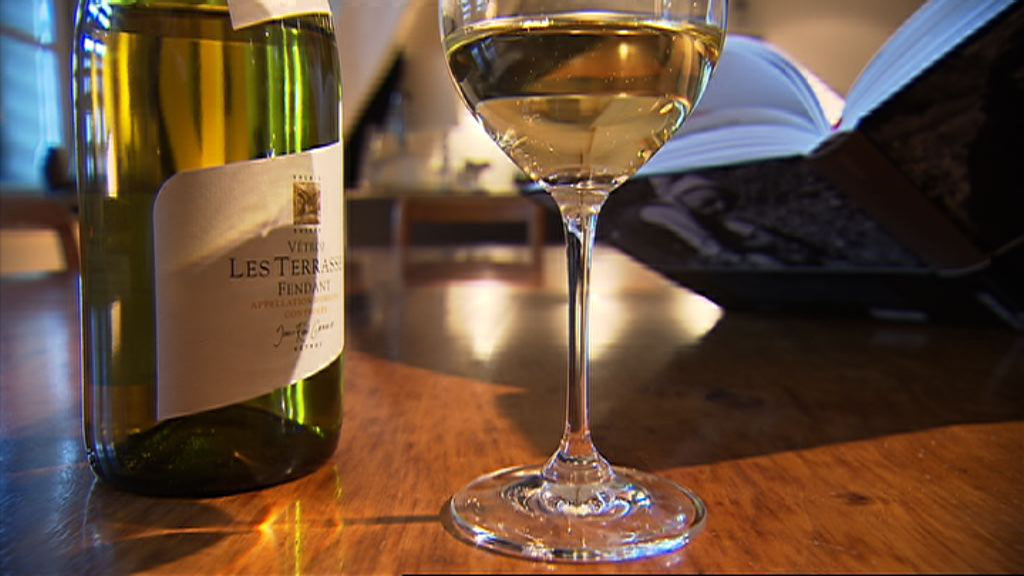
Swiss experts recommend lower alcohol intake

Men should drink no more than two glasses of alcoholic beverages a day, women no more than one to keep their health risks low, the new government guidelines have recommended.
The Federal Commission on Alcohol Issues (EKALExternal link) has revised its recommendations for low-risk alcohol consumption.
The new guidelines, published on Tuesday, replace the recommendations released in 2015.
The commission had heard enough new scientific evidence to update its advice and to lower its recommended low-risk drinking limit.
According to the recommendations, healthy men should drink no more than two standard glasses of alcohol per day, women one at most.
In 2015, the advice was that men could drink three glasses per day with minimal risk.
+ Drinking too much, too often?
A standard glass refers to the quantity of beer, wine or schnapps normally served in a restaurant.
Such a standard serving would usually contain between 10 and 12 grams of pure alcohol, EKAL wrote in its report.
The experts also suggest having at least two or more alcohol-free days every week.
Alcohol consumption should be adapted to one’s physical and mental health.
Pregnant or breastfeeding women and those planning to have a baby were advised to abstain from drinking completely.
The same abstinence advice goes for young people under the age of sixteen.
Alcohol, from the first glass, lowers people’s power of perception and reaction time.
In Switzerland, some 4% of people over the age of fifteen regularly drink in excess, according to figures by the Federal Office of Public Health.
Every fifth person in Switzerland engages in particularly risky binge drinking, categorised as the consumption of at least five (for men) or four (for women) alcoholic beverages within the space of a few hours.
The Federal Commission on Alcohol Issues advises the Swiss government on questions related to the direct and indirect effects of alcohol consumption.

More
The Swiss are drinking more wine, much of it produced at home

In compliance with the JTI standards
More: SWI swissinfo.ch certified by the Journalism Trust Initiative

























You can find an overview of ongoing debates with our journalists here . Please join us!
If you want to start a conversation about a topic raised in this article or want to report factual errors, email us at english@swissinfo.ch.